Artist Carol May emailed us some photos of a mosaic sculpture installation recently completed by her prolific team. These dyed concrete mosaic sculptures are exciting works of art. They also break several rules we have in our general recommendations for mosaic artists, which is an interesting point.
These site-specific mosaic sculptures are part of a permanent public art installation in City View Park in Virginia Beach, Virginia.
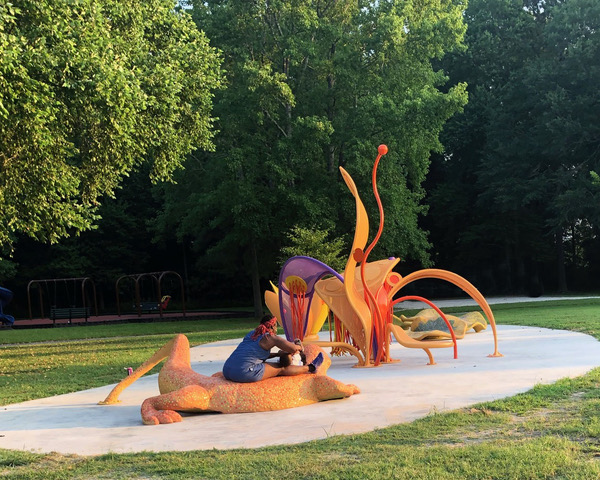
Breaking Rules
Our general recommendations were written in response to people asking for help in making figurative images in mosaic with as much verisimilitude as possible, a portrait for example, and so there isn’t any reason to apply them to mosaic sculpture.
The idea of breaking rules makes a good title though.
It should also remind people to think about how there are different types of mosaics and that it is important to nail down what type of mosaic art they are making before they start.
From my own experience, I know it is great to look at all sorts of art for inspiration, but you can really screw up technically when you confound two different methods or design intentions.
Lastly, the sculptural installation by May+Watkins Design breaks a general rule or norm with mosaic sculpture public art projects: It isn’t all mosaic. Some of the sculpture is painted steel.
The overall installation works very well as a whole.
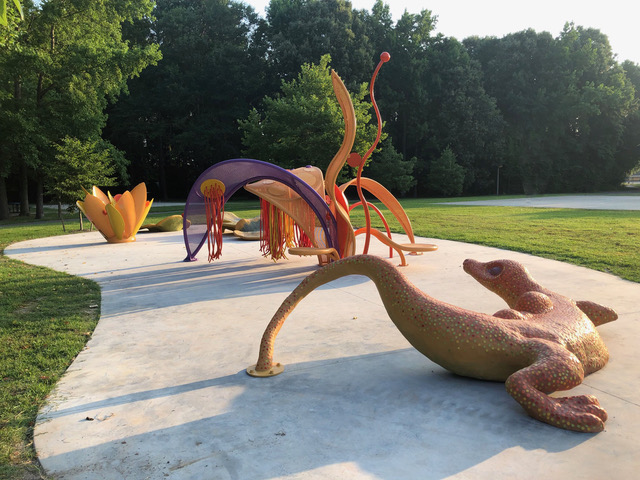
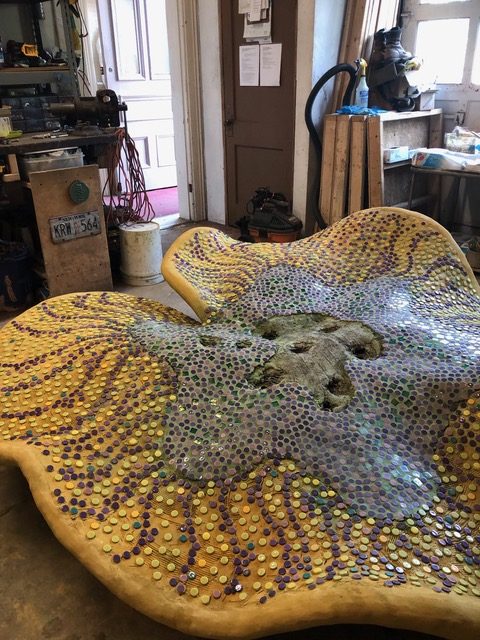
Dyed Concrete
Carol May’s mosaic sculptures are as much dyed concrete sculptures as they are mosaic surfaces. Instead of making a conventional tiled surface, the spaced tiles appear embedded in concrete, making them resemble scales or pores or patterning.
This patterning is all the more interesting because it is a patterning of texture and color, giving the 3-D sculpture its smallest level of detail.
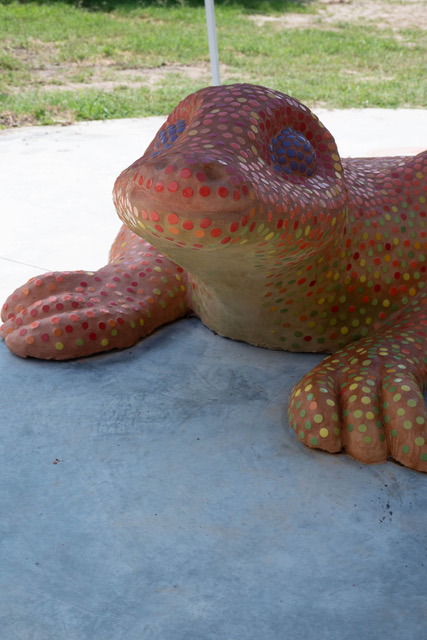
For me at least, tile embedded in concrete has wonderful associations with found-object mosaic and the folk mosaics of Mexican houses and African-American memory jars.
I also love the fact that these sculptures were made to be climbed on.
Natalija really liked these as well.
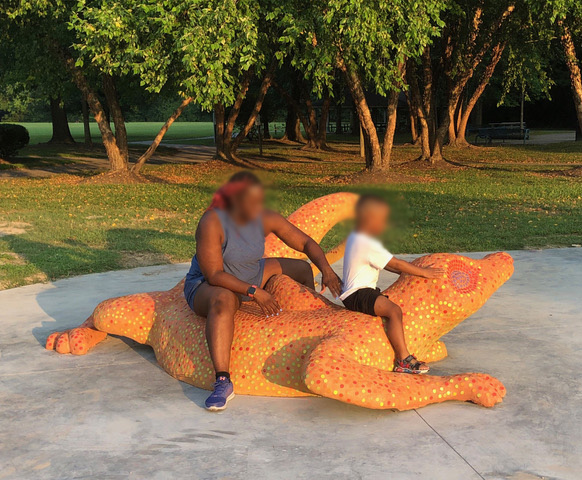
Some Caveats
If you want to make a mosaic portrait with as much likeness as possible, you are more likely to be successful if you place the tiles tightly together and use a black grout.
Most novices don’t like their results when they try to use grout as a source of color. We know this because we receive their emails.
It’s also more difficult to grout when grout gaps are wide, and you cannot use traditional grout for gaps are wider than 1/2 inch.
If you make your own lawn sculptures with wide gaps between the tiles, the space between needs to be filled with a strong mortar, one with polymers for tensile strength and increased adhesion, or a modified grout.
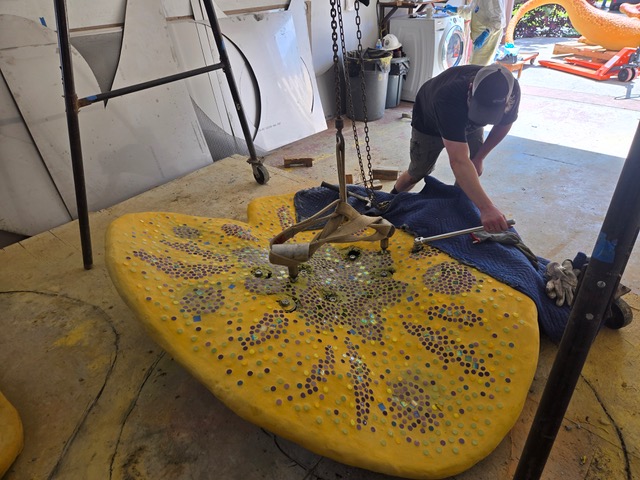
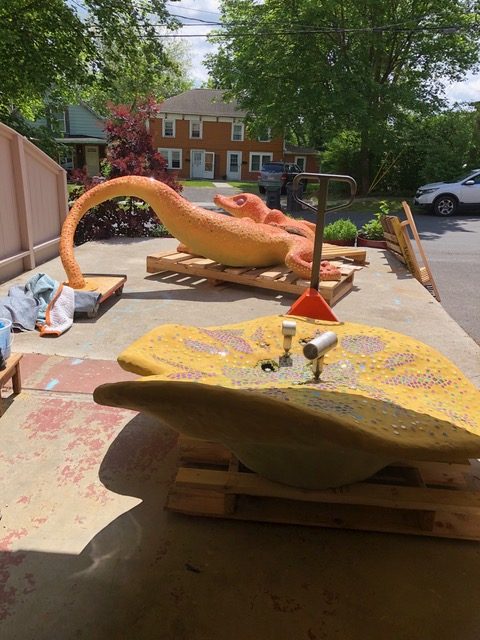
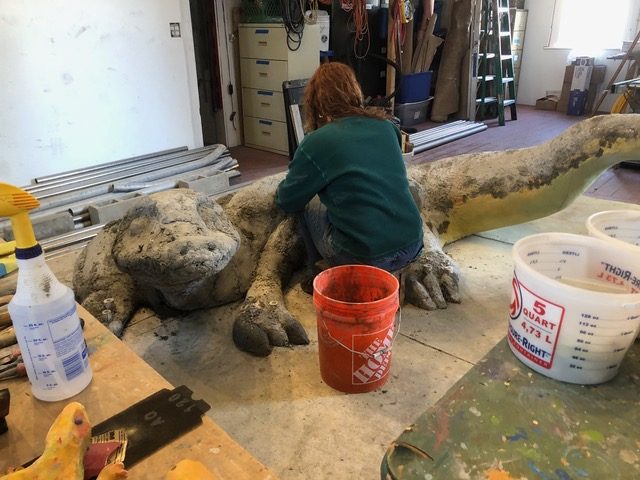
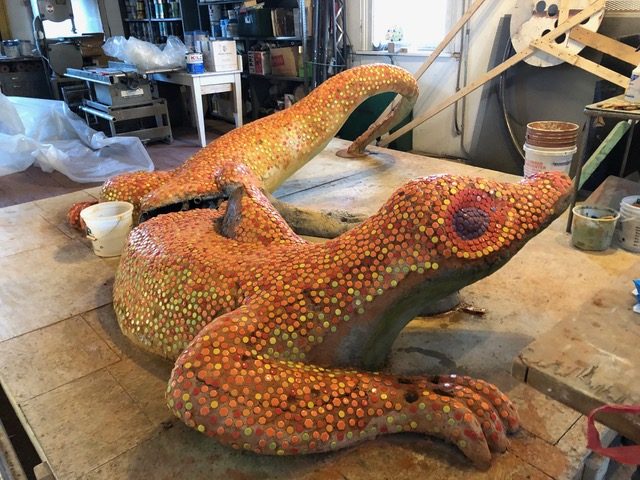
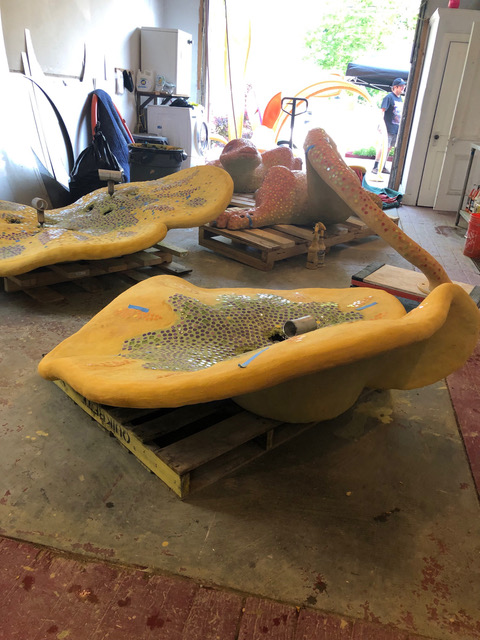
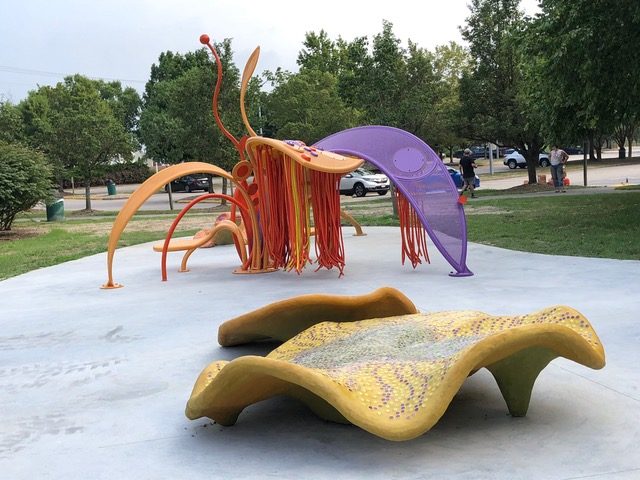

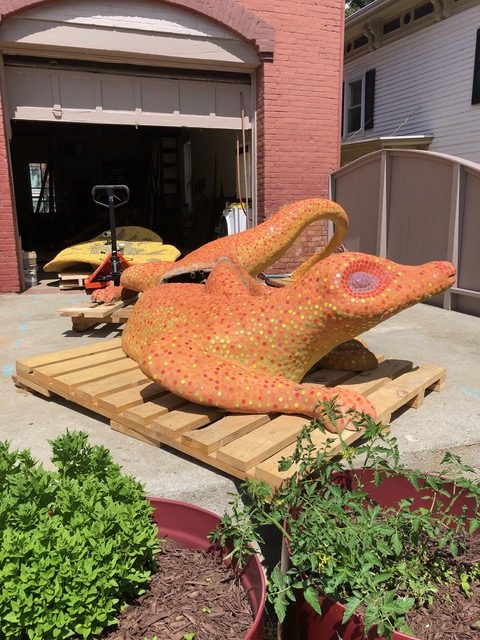
Leave a Reply